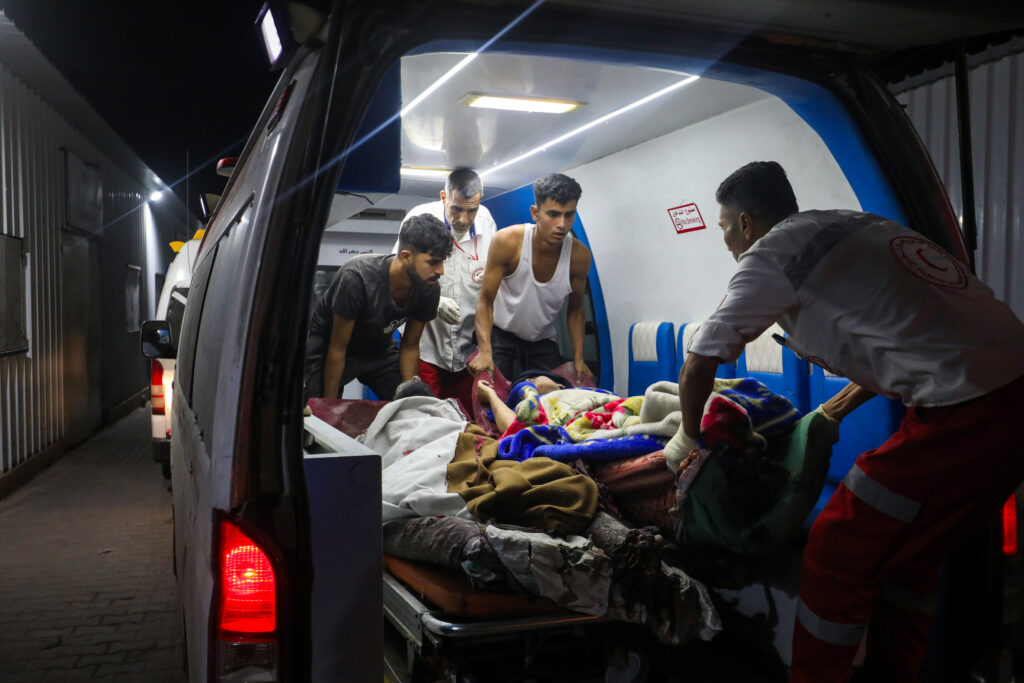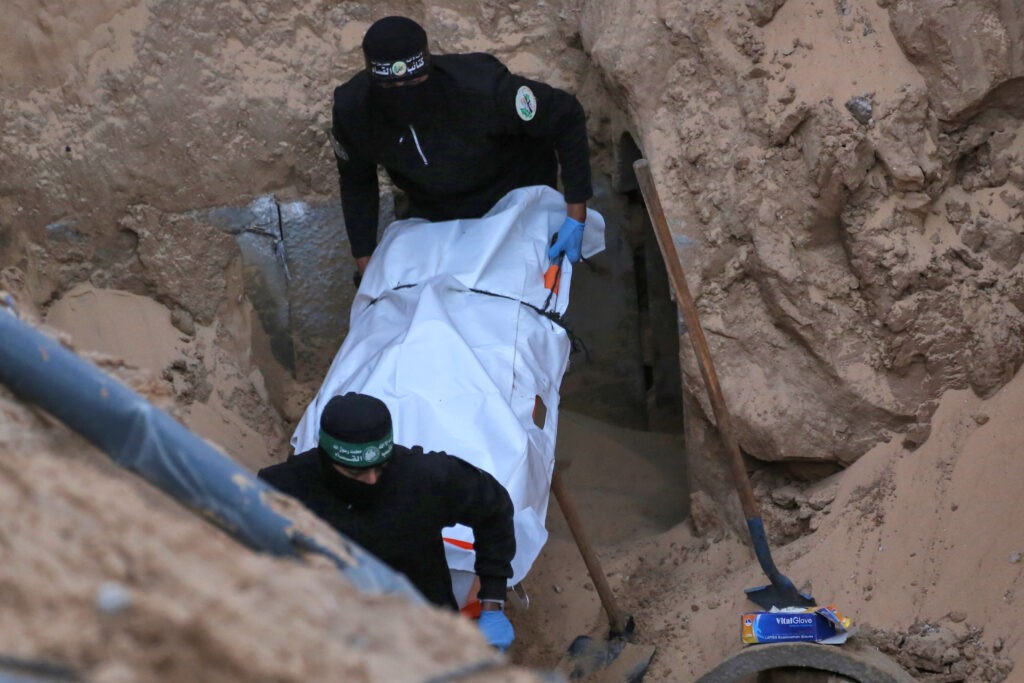AFP Asia Business
Gaza’s civil defence says at least 50 killed in Israeli strikes
Gaza’s civil defence agency said Wednesday that overnight air strikes killed at least 50 people in the Palestinian territory, as the Israeli military hit a string of targets after an attack that left a soldier dead.Agency spokesman Mahmud Bassal called the strikes “a clear and flagrant violation of the ceasefire agreement”, though US President Donald Trump insisted during a trip to Asia that “nothing” would jeopardise the truce he helped broker.The civil defence, which operates as a rescue force under Hamas authority, said 22 children were among those killed, as well as women and the elderly, and that around 200 people were wounded.”The Israeli strikes targeted tents for displaced people, homes and the vicinity of a hospital in the Strip,” Bassal told AFP.Israel began carrying out air strikes on Tuesday after accusing Hamas of attacking its troops in Gaza and violating the truce. A military official said soldier Yona Efraim Feldbaum, 37, was killed in Rafah when an engineering vehicle was hit by “enemy fire”.”A few minutes later, several anti-tank missiles were fired at another armoured vehicle belonging to the troops in the area,” the official said.Hamas said its fighters had “no connection to the shooting incident in Rafah” and reaffirmed its commitment to the US-backed ceasefire.Trump defended Israel’s response on Wednesday, but added that “nothing’s going to jeopardise” the truce.”They killed an Israeli soldier. So the Israelis hit back. And they should hit back,” Trump told reporters on Air Force One during his tour of Asia.- Escalations -The territory’s main Al-Shifa hospital said one of the strikes hit its back yard.Al-Awda Hospital said it had received several bodies, including those of four children, killed in the bombing of Gaza’s central Nuseirat refugee camp.”We had just started to breathe again, trying to rebuild our lives, when the bombardment came back,” said Khadija al-Husni, who lives in a tent at a school in the Al-Shati refugee camp.”It’s a crime. Either there is a truce or a war — it can’t be both. The children couldn’t sleep; they thought the war was over.”Hamas announced it would delay handing over the body of another hostage, due on Tuesday, saying Israeli “escalation will hinder the search, excavation and recovery of the bodies”.Hamas militants took 251 people hostage during its October 7, 2023 attack on Israel that triggered the war.A row over the last remaining bodies of deceased hostages has threatened to derail the ceasefire agreement.Israel accuses Hamas of reneging by not returning them, but the Palestinian group says it will take time to locate remains buried in Gaza’s ruins.Hamas later said on Telegram it had found the bodies of two hostages on Tuesday, but did not specify when it would hand them over.- ‘Act decisively’ -Hamas came under mounting pressure on Monday after it returned the partial remains of a previously recovered captive, which Israel said was a breach of the truce.Hamas had said the remains were the 16th of 28 hostage bodies it had agreed to return under the ceasefire deal, which came into effect on October 10.But Israeli forensic examination determined Hamas had in fact handed over partial remains of a hostage whose body had already been brought back to Israel around two years ago, according to Netanyahu’s office.Israeli government spokeswoman Shosh Bedrosian accused Hamas of staging the discovery of the remains.”Hamas dug a hole in the ground yesterday, placed the partial remains… inside of it, covered it back up with dirt, and handed it over to the Red Cross,” she told journalists.The Hostages and Missing Families Forum urged the government to “act decisively against these violations” and accused Hamas of knowing the location of the missing hostages.Hamas spokesman Hazem Qassem rejected claims the group knows where the remaining bodies are, arguing that Israel’s bombardment during the two-year war had left locations unrecognisable.”The movement (Hamas) is determined to hand over the bodies of the Israeli captives as soon as possible once they are located,” he told AFP.- ‘We want to rest’ -The Palestinian militant group has already returned all 20 living hostages as agreed in the ceasefire deal.Hamas’s October 2023 attack resulted in the deaths of 1,221 people on the Israeli side, most of them civilians, according to an AFP tally based on official Israeli figures.Israel’s subsequent assault on Gaza has killed at least 68,531 people, according to figures from the Hamas-run territory’s health ministry that the UN considers reliable.Despite the ceasefire, the toll has continued to climb as more bodies are found under the rubble.On the ground in Gaza, 40-year-old Jalal Abbas told AFP that the “return of war is what we feared most”. “I expected the escalation and bombardment to resume because Israel always creates pretexts,” he said. “Every day they threaten to bring back the war, using the issue of the bodies as an excuse.”
Trump says ‘nothing’ will jeopardise Gaza ceasefire after Israeli strikes
US President Donald Trump said Wednesday “nothing” would jeopardise the ceasefire in Gaza, after Israel carried out air strikes on the Palestinian territory accusing Hamas of violating the truce, which the militant group denied.Gaza’s civil defence agency said at least 38 people were killed in the Israeli strikes, which took place on Tuesday.Prime Minister Benjamin Netanyahu ordered “powerful strikes” on Gaza, after his defence minister accused Hamas of attacking Israeli troops in Gaza. While Israel Katz did not say where the troops were attacked, Hamas said its fighters had “no connection to the shooting incident in Rafah” and reaffirmed its commitment to the US-brokered ceasefire.Trump defended Israel’s actions on Wednesday, saying it “should hit back” if Israeli soldiers were killed, but added that “nothing’s going to jeopardise” to truce.”They killed an Israeli soldier. So the Israelis hit back. And they should hit back,” Trump told reporters on Air Force One during his tour of Asia.US Vice President JD Vance said the ceasefire was holding despite the “skirmishes”.”We know that Hamas or somebody else within Gaza attacked an IDF soldier… but I think the president’s peace is going to hold,” he said.- Escalations -Gaza’s civil defence agency said at least three strikes were carried out, while the territory’s main Al-Shifa hospital said one hit its backyard.Al-Awda Hospital said it had received several bodies, including those of four children, killed in the bombing of Gaza’s central Nuseirat refugee camp.Hamas announced it would delay handing over the body of another hostage, due on Tuesday, saying Israeli “escalation will hinder the search, excavation, and recovery of the bodies”.Hamas militants had taken 251 people hostage during the October 7, 2023 attack on Israel that triggered the war.A row over the last remaining bodies of deceased hostages has threatened to derail the ceasefire agreement.Israel accuses Hamas of reneging by not returning them, but the Palestinian group says it will take time to locate the remains buried in Gaza’s war-ravaged ruins.Hamas later said on Telegram it had found the bodies of two hostages on Tuesday, but did not specify when it would hand them over.- ‘Act decisively’ -Hamas came under mounting pressure on Monday after it returned the partial remains of a previously recovered captive, which Israel said was a breach of the truce.Hamas had said the remains were the 16th of 28 hostage bodies it had agreed to return under the ceasefire deal, which came into effect on October 10.But Israeli forensic examination determined Hamas had in fact handed over partial remains of a hostage whose body had already been brought back to Israel around two years ago, according to Netanyahu’s office.Israeli government spokeswoman Shosh Bedrosian accused Hamas of staging the discovery of the remains.”Hamas dug a hole in the ground yesterday, placed the partial remains… inside of it, covered it back up with dirt, and handed it over to the Red Cross,” she told journalists.The Hostages and Missing Families Forum urged the government to “act decisively against these violations” and accused Hamas of knowing the location of the missing hostages.Hamas spokesman Hazem Qassem rejected claims the group knows where the remaining bodies are, arguing that Israel’s bombardment during the two-year war had left locations unrecognisable.- ‘We want to rest’ -“The movement (Hamas) is determined to hand over the bodies of the Israeli captives as soon as possible once they are located,” he told AFP.The Palestinian militant group has already returned all 20 living hostages as agreed in the ceasefire deal.Hamas’s October 2023 attack resulted in the deaths of 1,221 people on the Israeli side, most of them civilians, according to an AFP tally based on official Israeli figures.Israel’s subsequent assault on Gaza killed at least 68,531 people, according to figures from the Hamas-run territory’s health ministry that the UN considers reliable.Despite the ceasefire, the toll has continued to climb as more bodies are found under the rubble.On the ground in Gaza, 60-year-old Abdul-Hayy al-Hajj Ahmed told AFP he was afraid the war would start again.”Now they accuse Hamas of stalling, and that is a pretext for renewed escalation and war,” he said.”We want to rest. I believe the war will come back.”


